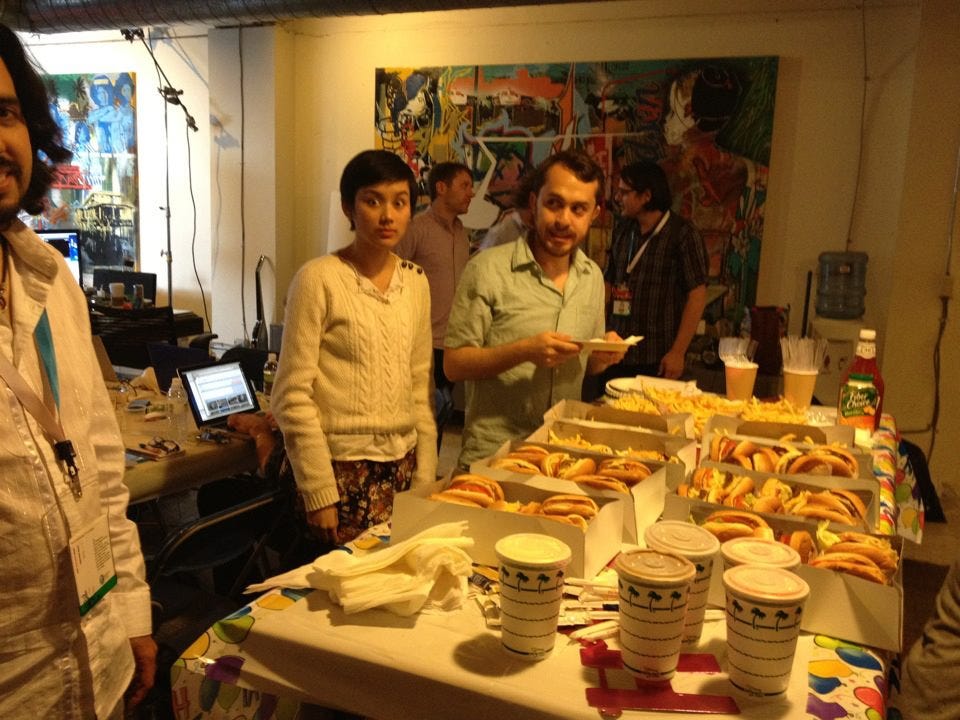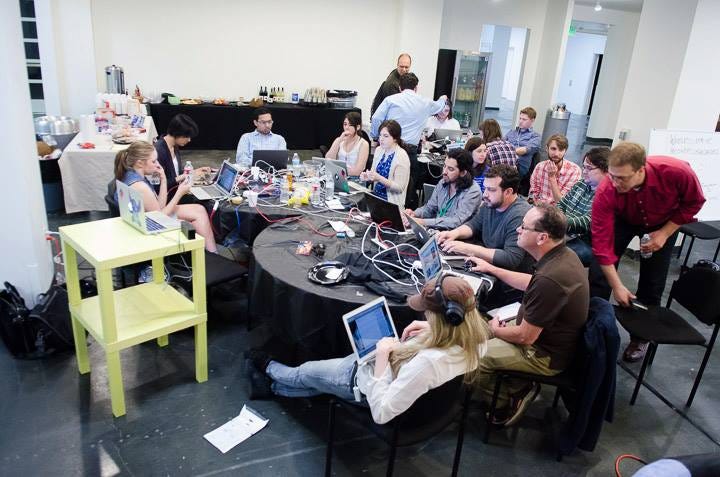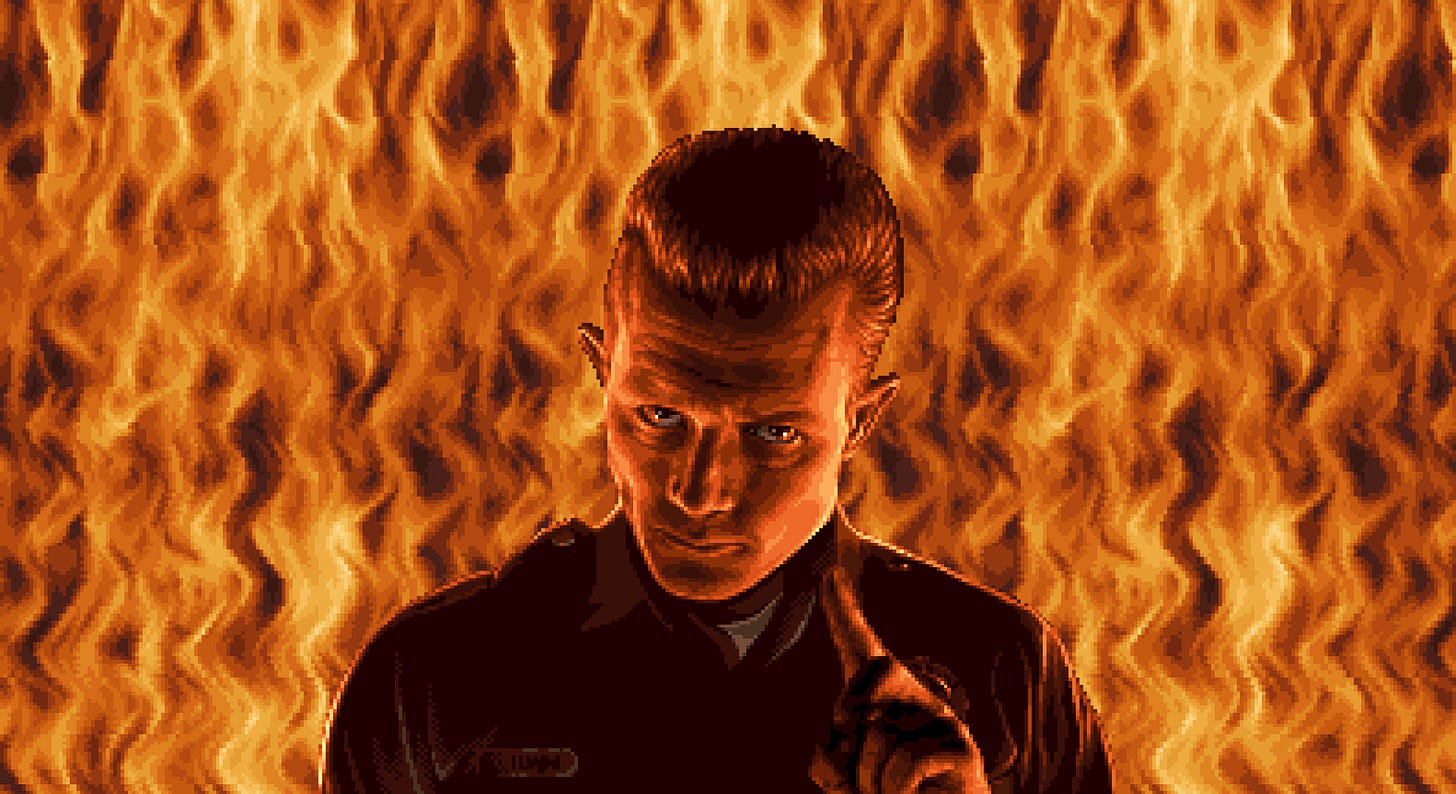Polygon's fitful birth and sudden 'death'
It's easier to kill something, than bring it to life ... or sustain it
It took about a year for Polygon to come screaming to life back in 2012.
It took less than a day to kill it.
Perhaps it’s premature to call the time of death for the gaming site once owned by Vox Media, but even if its new owners somehow recreate the splendid thing that was Polygon, it will never be the same.
The point of this column, though, isn’t to ruminate on the death of something special in the world of games journalism, but rather to talk about its unusual, spectacular birth.
That’s in some part because while I heard rumblings over the years about the site and its inner workings, I haven’t been a part of Polygon for nearly eight years.
But I was there in those first weeks of its inception.
That’s in large part due to Stephen Totilo. I brought Totilo on to Kotaku as a deputy editor in 2009, and in late 2011, Gawker Media founder Nick Denton forced me out. In the weeks leading up to my final days at the site I shaped, Totilo put me in touch with Chris Grant, who was building out a team to create a new site.
I wasn’t the first choice, but with Totilo not interested, Grant turned to me. After chatting with the other seven founding editors, I decided I wanted to pitch in and help to create something new.
The chance to build a new publication from scratch is rare. To do so with the full backing of a blossoming media company is almost unheard of.
It was a wild time. I went from running Kotaku and writing sometimes a dozen stories a day to suddenly feeling completely adrift.
Grant assigned “homework” to everyone based on their expertise and titles. I was the news editor, so my research was into the current state of news online, particularly gaming. Arthur Gies was to head up reviews. Russ Pitts handled both video and features; Griffin McElroy became the deputy news editor; Russ Frushtick initially was to run mobile coverage; Chris Plante, Justin McElroy, who wrangled us all, and Chris Grant were also the site’s co-founders.
That was most evident when we gathered in D.C. at the beginning of 2012 to hash out what the site would be from a blank canvas.
We presented our research.
We debated news coverage, news focus, style guides, grammar, features, videos, and reviews; sometimes things got heated. (Try convincing Arthur that reviews shouldn’t have scores.)
But we eventually settled on a working framework, a miracle in itself when you consider the eight voices in the room.
Next came the hiring. Each team had its own budget and had to decide how best to use it. Griffin and I decided to hire two groups of reporters for the news: those with little experience and those with a lot of experience. They were formed into two teams, with the less experienced reporting to Griffin and the more experienced reporting to me. Griffin and I would hold regular meetings to discuss news, but essentially, the teams operated independently under the two of us.
Beyond a lot of training and meetings, what came next is well documented in the Press Reset mini-doc Polygon produced about itself. Some were upset about the documentary for different reasons. (Was it an ego trip? Why did we fund the documentary with a Microsoft ad buy?) I still think it had an admirable goal and provided a level of insight into the making of a publication that you rarely see.
The site’s dress rehearsal came in February of 2012, with stories being posted on The Verge under the placeholder name of Vox Games. That same month kicked off a whirlwind tour of developers, shows, and even a talk at UCLA to discuss the emerging site and meet with the industry as a whole. (It included a hilarious Behind the Scenes visit with Activision where I both somehow forgot to bring my pad and pencil, and we momentarily bumped into Trent Reznor, who was working on some of the soundtrack for the game.)
On Oct. 24, 2012, Polygon popped into official existence with the sort of flare you’d expect from a major magazine. There was a beefy feature on Halo 4’s playtest labs, a Medal of Honor Warfighter review, columns, videos, and more news than you could imagine.
Externally, I’m sure it looked like Polygon came to life fully formed, which was the point.
Things continued from there. We grew, our traffic jumped in jagged spikes, and soon, we were competing with the rest of the gaming publications on the market. Eventually, we would top Kotaku to become the world's third-biggest video game site.
Along the way, things changed. I’ll leave it to others to argue whether it was for the better or the worse. The ideal, the sort of round table of leaders, was done away with, and Chris Grant took over the vision of the site. At the same time, internal groups (like those that discussed the style guide or ethics) were shut down as we refocused on running a site daily.
The site hit its first major snag in 2014, leading to some painful departures and eventually a hierarchical flattening. The concept of groups led by specific editors was eliminated, and we began to operate more ad hoc.
Finding myself without a news team to lead, I asked to be left to my own devices to work on some project and to be renamed executive editor, instead of news editor.
Grant was open to both ideas and granted me a surprising amount of freedom, budget, and a chance to work directly with the talented Matt Leone.
When I asked him for the time to chase down a wild, weird, esoteric story about pinball, he said yes without hesitation. What followed was one of my favorite pieces of my writing and reporting.
When I doubled down and asked to travel to Cuba to document the gaming culture there, Grant didn’t blink, and soon I found myself wandering the streets of Havana chasing down stories for what would become a dozen-story package—and my favorite piece of my work.
While I’ll always appreciate the freedom Grant gave me in those days, I found myself drifting away from the site's shifting goals and purpose. It was slowly evolving into a pop culture site with amazing work covering television, movies, comics, and video games.
I saw it as a contender to IGN. But I also saw it as a time to move on.
So I did, giving notice and moving to Rolling Stone and then Variety to briefly build up and then shut down their video game coverage.
These days, I run a consulting business that specializes in creating features, podcasts, and videos to underscore the value of video games and the people who make them.
I co-created a 50-episode podcast for the LEGO Group and worked with Unreal, Tencent, and the Washington Post in various ways. These days, I spend a lot of time running news for the Epic Games Store’s fledgling news page, among other things.
It’s all fantastic work, and I’m blessed to have it.
But I do miss those early Polygon days of sweating deadlines, working shoulder-to-shoulder with some of the most talented reporters and writers I’ve ever worked with.
To see all of that snapped away—so many talented people left without jobs—and Polygon handed off to a company with a less-than-stellar record isn’t just disheartening, it’s heartbreaking.
When you put so much of yourself into something, you elate in its success but also hope for its survival. I can’t speak for the other co-founders, but I think it’s safe to say we all thought this would be not just a place that served readers for decades but also a safe shelter for a new generation of reporters and writers—a place to tell stories that people want to read.
It’s perhaps a bit selfish for me to be most sad about that loss.
Harebrained Schemes Discusses Three Major Lessons Learned From The Lamplighters League
PLAYERUNKNOWN reveals how Prologue: Go Wayback! lays the groundwork for an Earth-size game
No fate, just pixels: Terminator 2D revives Judgment Day, pixel by pretty pixel









I was never a part of Polygon, but was a part of Joystiq, and during my time there came to know many of the voices on that site who would go on to create Polygon as friends. It is painful to see them and the fruits of their passions and creative energies be tossed into what amounts to a puppy mill. I truly hope each and every person (and family) impacted by this poor decision lands firmly on solid ground, on their feet and with brighter days ahead. Today is a grey day for gaming journalism.